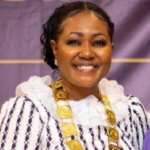
Introduction
Africa’s future is being written in its classrooms today.
As the continent strives to achieve the aspirations of Agenda 2063, one truth stands clear: sustainable national development begins with ethical leadership, and ethical leadership begins with our children.
The values instilled in school-age youth today will shape the governance, businesses, and societies of tomorrow.
Why focus on children? Because character is built early, and leadership is a habit formed long before one assumes a boardroom seat or public office.
The Case for Early Ethical Leadership Development
1. The Formative Years: Where Values Take Root
Research shows that 90% of a child’s brain development occurs before age 5, and core ethical frameworks—such as fairness, empathy, and accountability- are largely solidified by adolescence.
If we wait until young professionals enter the workforce to teach integrity, we have missed the most critical window of influence.
In Rwanda, the Itorero programme integrates leadership and ethics into school curricula, fostering a culture of responsibility from childhood.
2. Breaking the Cycle of Corruption and Poor Governance
Many of Africa’s governance challenges: corruption, nepotism, and short-term thinking, are symptoms of broken value systems.
By teaching children
#. Transparency e.g., through student council elections
Service mindset (e.g., community projects)
#. Accountability (e.g., peer-led disciplinary systems) etc, we cultivate a generation that rejects malfeasance as the norm.
3. Aligning with Global Best Practices
#. Singapore mandates ethics education in schools, linking it to national progress.
#. Finland embeds integrity into teacher training, creating a trickle-up effect.
#. Africa must adapt these models to its cultural context.
How Schools Can Foster Ethical Leadership
1. Curriculum Integration
Ethics as a Core Subject. Move beyond rote memorisation to case-based learning (e.g., debating real-world governance dilemmas).
Extra-Curriculars Model AU/UN, debate clubs, and anti-corruption youth chapters.
2. Teacher Training
Educators must exemplify ethical behaviour; children learn more from what we do than what we say.
3. Public-Private Partnerships
Corporate Sponsorships; Banks/firms funding “Integrity Clubs” in schools.
Government Collaboration; Ministries of Education adopting National Ethics Competencies or good governance practice toolkits.
A Success Story is Botswana’s “My Leaders” Program;
Botswana’s nationwide initiative places emphasis on integrity competitions, where students propose solutions to local governance challenges. Winning ideas are adopted by municipal councils proving that even children can drive change.
The Ripple Effect: From Classrooms to Countries
Ethical children become:
#. Ethical university students reducing examinations fraud, fostering research integrity.
#. Ethical professionals prioritising ESG, and rejecting bribery.
#. Ethical policymakers designing inclusive systems.
This is how we transform systemic culture.
A Call to Action
#. Governments’ mainstream ingredients must focus on ethics education in national curricula.
#. Schools must partner with governance bodies like the Institutes of Directors (IoDs) found in almost all countries on the globe, for training.
#. Parents must model integrity as children mirror what they see.
#. Corporates must prioritise funding youth leadership initiatives (CSI) with ROI
Conclusion
Africa’s next wave of transformation won’t start in parliaments or boardrooms; it starts in primary schools, where tomorrow’s leaders are just beginning to understand their power.
At the ACGN, we’re launching a pilot programme for Governance Scouts, a programme to train 10,000+ schoolchildren annually in ethical leadership. Join us.
The seeds of national development are planted early. Let’s nurture them.
About the Author
Angela Carmen Appiah leads the African Corporate Governance Network (ACGN) championing governance innovation for 20+ member countries representing 20 000 + directors Senior Executives and C-Suit members on the continent
Follow us on:
#. Facebook: AfricanCorporateGovernanceNetwork
#. LinkedIn: African-Corporate-Governance-Network
#CatchThemYoung
#EthicalAfrica #Agenda2063 #LeadershipMatters